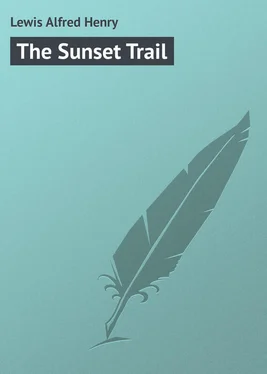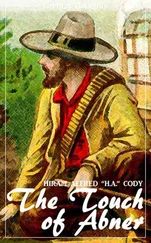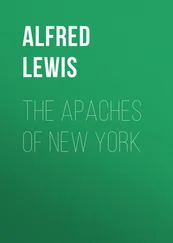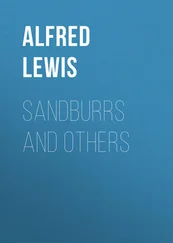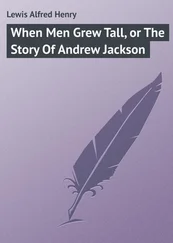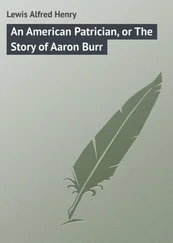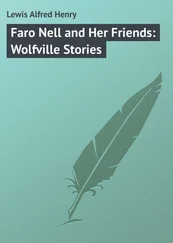Alfred Lewis - The Sunset Trail
Здесь есть возможность читать онлайн «Alfred Lewis - The Sunset Trail» — ознакомительный отрывок электронной книги совершенно бесплатно, а после прочтения отрывка купить полную версию. В некоторых случаях можно слушать аудио, скачать через торрент в формате fb2 и присутствует краткое содержание. Жанр: foreign_prose, foreign_adventure, на английском языке. Описание произведения, (предисловие) а так же отзывы посетителей доступны на портале библиотеки ЛибКат.
- Название:The Sunset Trail
- Автор:
- Жанр:
- Год:неизвестен
- ISBN:нет данных
- Рейтинг книги:5 / 5. Голосов: 1
-
Избранное:Добавить в избранное
- Отзывы:
-
Ваша оценка:
- 100
- 1
- 2
- 3
- 4
- 5
The Sunset Trail: краткое содержание, описание и аннотация
Предлагаем к чтению аннотацию, описание, краткое содержание или предисловие (зависит от того, что написал сам автор книги «The Sunset Trail»). Если вы не нашли необходимую информацию о книге — напишите в комментариях, мы постараемся отыскать её.
The Sunset Trail — читать онлайн ознакомительный отрывок
Ниже представлен текст книги, разбитый по страницам. Система сохранения места последней прочитанной страницы, позволяет с удобством читать онлайн бесплатно книгу «The Sunset Trail», без необходимости каждый раз заново искать на чём Вы остановились. Поставьте закладку, и сможете в любой момент перейти на страницу, на которой закончили чтение.
Интервал:
Закладка:
After breakfast, Mr. Masterson lighted one of Mr. Hanrahan’s cigars, and took a look from a rear window. It was well into the morning. A long six hundred yards away a score or more of the younger savages, restless with a lack of years and sore to be thus knocked about on their first warpath by a huddle of buffalo hunters, were galloping hither and yon. Their war bonnets still flaunted, and their ponies still streamed with ribbons; but where was that hot courage which had brought them a trio of times up to the muzzles of those buffalo guns? Mr. Masterson counted the distance with his eye; then he shook his head.
“Bob,” said he to Mr. Wright, “I can’t be sure at that range with my gun. It’s got buckhorn sights – coarse enough to drag a dog through ’em. Where’s that closed-sight gun you brought out last week, the one with the peep sight in the grip?”
“It’s here,” returned Mr. Wright, “but there’s no cartridges nearer than the store.”
“That’s all right,” said Mr. Masterson. “You boys cover me, and I’ll make a dash for the store. I want to see how they’re getting on over there, at that.”
Mr. Masterson went through one of the eighteen-inch openings. The distant Indians saw him, but appeared indifferent. There was a tall wall of mud between the store and Mr. Hanrahan’s saloon. There was a gate, but that had been closed and locked by Baldy Smith. Mr. Masterson’s plan was to crawl under the gate, being invited by an open space of at least a foot. It was better than climbing; were he to do the latter some far-off lucky savage might manage a cock-shot of him as he went over the top.
As Mr. Masterson stooped to dive beneath the gate, he shouted loudly to those in the store. He had no desire to be mowed down by his friends, upon a notion that he was some enterprising Indian, piercing their defences. At Mr. Masterson’s shout, a wounded Indian, who was lying low in a clump of weeds, sat up and with the utmost good will pumped three bullets at him from a Spencer seven-shooter. The bullets chucked into a pile of chips, heaped up where the cook was wont to chop his fire wood. They buried the crawling Mr. Masterson beneath a shower of bark and chips and splinters, but did no harm.
Mr. Masterson’s feelings were ruffled by the shower of chips. On reaching the store, his first care was to borrow a rifle, poke a hole in the mud wall and quiet that uneasy personage in weedy ambuscade.
“I don’t want him whanging away at me on my return,” explained Mr. Masterson.
There were five in the store. Young Thurston had been shot through the lungs. His days were down to minutes; parched with the death-fever, he lay calling for water.
There was no well in the store as in the forethoughtful Mr. Hanrahan’s saloon. The store pump was fifty yards away in the stark, undefended open.
“I reckon now,” said Daddy Keeler, “I’ll go fetch a bucketful. I’m the gent to go, because my eyes are too old and dim to do anything at six hundred yards. I’d just waste cartridges.”
Daddy Keeler was called Daddy Keeler for two reasons. For one matter, he had passed sixty years; and for another, everybody loved him. In the West when a man is loved they give him a nickname.
Also, there are no struggles for precedence in the West. Each man plays his part in peace or war as best dovetails with his pleasure. Not one in the beleaguered store would have hesitated to run the gauntlet of those savage rifles to bring water to young Thurston as he died. Yet not one would offer to take the place of Daddy Keeler. To do so would have been in violation of Panhandle proprieties, and Daddy Keeler would have resented it to the death.
Daddy Keeler took a bucket and tossed it through an opening. For all his years and hair of gray, he was as active as a cat. He made no task of sliding through the opening after the bucket. The four who remained stood ready, should the sight of him cause a rush to cut him off. As, bucket in hand, he started for the pump, a frightened dog, in hiding behind a heap of lumber, came forth and followed whiningly.
The savages were not slow in getting to work. They didn’t charge; their stomachs were too weary for that. But their rifles cracked by twos and tens and twenties. The bullets zipped and whistled as thick as twilight bats.
The pump was sun-dried and slow; it cost two minutes to start the water from the cracked spout, and five to fill the bucket. Smack! smack! the pump was struck a dozen times, while in twenty places the well-platform was rasped or whitely splintered by the flying lead.
Daddy Keeler pumped doggedly, and never raised his head; the creaking of the pump-handle matched with the low howling of the frightened dog. Daddy Keeler’s sombrero went whirling, the dog was shot down at his feet; still he pumped on. The bucket at last was filled. Daddy Keeler picked up his hat and fixed it on his head. Then he brought the bucket and passed it through the opening without spilling a drop. The next moment he had followed it, and never a mark upon him.
“It’s some hot out thar in the sun,” said Daddy Keeler, apologetically, wiping the great drops from his forehead. Then taking off his sombrero, and considering the double hole the bullet had left: “It was a forty-four did that; some of ’em’s shootin’ Winchesters.” For fourteen long, hot days the fight went on; now and then a charge, more often long-range shooting, whereat the buffalo hunters excelled. When the fight flagged the garrison played poker, leaving one to watch.
Every night one-half the garrison must dig graves for the dead – pony and Indian alike. The argument for these sexton labours was sanitary, not sentimental. In the blinding height of a Panhandle summer it is no good thing to be cordoned about with dead ponies and dead Indians. There was never a danger; your savage lies close, and will not move in the dark unless one crowd him. He is so much the Parthian that it is against his religion to fight in the night.
Before the burial parties tumbled an Indian into his sepulchre, they were at pains to have his scalp as an incontestable method of keeping accounts. On the fifteenth day, when the troops from Dodge relieved the siege, there were eighty topknots to tell the loss of the enemy.
Inez, when the fighting fell to long-range, cried to be lifted from her box. Inez did not fear bullets; arrows were a different commodity and set her nerves on edge. She could see them; besides, they smelled fearfully of Indians. As long as no arrow came spitting and splintering through the openings, Inez was without a care. She would have been content were it not for her rations of merely bread and water. This she thought squinted at parsimony, and it aroused her spleen.
When the cavalry came riding down from Dodge the beaten remnant of that war party went squattering through the shallow reaches of the Canadian, and headed south for the Staked Plains. Then the visiting Osages and Pawnees, pipe in hand and blankets wrapped about them, came beamingly from their audience hill to offer congratulations.
“How!” said Black Feather, the Osage chief, extending his hand to Mr. Wright “How! Heep big fight!”
Then Black Feather went over the four score scalps, and whether by tint of plume or mark of braid, hidden to the white man, confidently told the tribe of each.
“Comanche!” grunted Black Feather, picking up a scalp; and then: “Kiowa, Cheyenne, Arrapahoe,” as he pawed the others over one by one.
“Who were right in this shindy?” asked the captain of cavalry.
That officer was curious to hear what Black Feather would say to the question. Black Feather, who believed firmly in the equities of force, did not hesitate.
“White man right,” said he. “The longest lance is right.”
What of that mysterious bugle, whereof the music so shook the men of buffaloes? It was blown by a caitiff negro, a deserter from Uncle Sam’s swart cavalry. The third charge was the black bugler’s last. Striped and painted like the others, the burial party might never have known the race or colour of him had it not been for his want of a scalp lock. They took his bugle instead, and rolled him into the trench with the others.
Читать дальшеИнтервал:
Закладка:
Похожие книги на «The Sunset Trail»
Представляем Вашему вниманию похожие книги на «The Sunset Trail» списком для выбора. Мы отобрали схожую по названию и смыслу литературу в надежде предоставить читателям больше вариантов отыскать новые, интересные, ещё непрочитанные произведения.
Обсуждение, отзывы о книге «The Sunset Trail» и просто собственные мнения читателей. Оставьте ваши комментарии, напишите, что Вы думаете о произведении, его смысле или главных героях. Укажите что конкретно понравилось, а что нет, и почему Вы так считаете.
